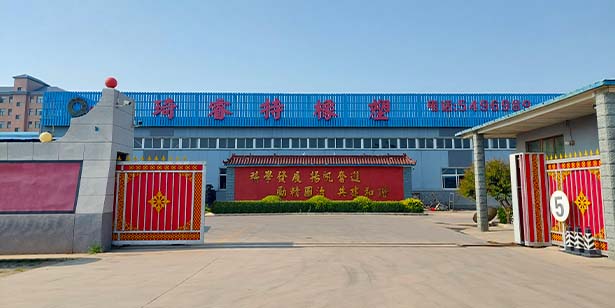SAE J2064 Standards for Automotive Air Conditioning Hose Specifications and Usage Guidelines
Understanding SAE J2064 A Guide to Air Conditioning Hose Standards
Air conditioning systems are essential components in today’s vehicles, ensuring comfort for passengers regardless of external weather conditions. Central to these systems is the air conditioning hose, responsible for carrying refrigerant between various components. The Society of Automotive Engineers (SAE) has established standards for these hoses, particularly SAE J2064, to enhance safety, reliability, and efficiency in automotive air conditioning systems. This article delves into the details of SAE J2064, its purpose, specifications, and significance in the automotive industry.
What is SAE J2064?
SAE J2064 is a standard formulated by the Society of Automotive Engineers that outlines the performance requirements for automotive refrigerant hoses used in air conditioning systems. This standard specific to the automotive industry provides guidelines for the materials, construction, testing, performance, and durability of hoses designed to handle refrigerants. It aims to ensure that these hoses maintain their integrity and functionality under various operating conditions, ultimately enhancing the safety and efficiency of automotive air conditioning systems.
Key Specifications of SAE J2064
The SAE J2064 standard classifies air conditioning hoses into different categories based on their inherent properties and intended applications. Here are some key specifications
1. Material Composition Hoses must be constructed from materials that resist both the refrigerants and lubricants used in the air conditioning systems. Common materials include synthetic rubber and thermoplastic elastomers, chosen for their excellent compatibility with refrigerants and resistance to wear and aging.
2. Pressure Ratings The hoses are required to withstand high-pressure conditions, which can reach up to 300 psi (pounds per square inch) in some automotive applications. The standard specifies the minimum burst pressure to ensure that the hoses can endure intense internal pressures without failure.
3. Temperature Range SAE J2064 defines the temperature ranges that the hoses must operate within, typically from -40°F to +257°F (-40°C to +125°C). This wide range ensures functionality across varying climates and driving conditions.
4. Flexibility and Bend Radius The hoses must possess flexibility to allow for ease of installation and operation without kinking. The minimum bend radius is specified to prevent damage during routing and installation.
sae j2064 air conditioning hose

5. Durability and Aging Resistance SAE J2064 also includes requirements for hose durability, addressing how well the hoses can resist aging due to exposure to sunlight, heat, and other environmental factors. Testing procedures help ensure that hoses maintain their strength and performance over time.
6. Compatibility with Refrigerants Given the transition from R-134a to R-1234yf refrigerants in many modern vehicles, the hoses must be compatible with these new refrigerants to avoid degradation. The standard provides guidelines to ensure such compatibility.
Importance of SAE J2064 in the Automotive Industry
1. Safety By adhering to SAE J2064 standards, manufacturers can produce hoses that minimize the risk of leaks or failures, which can lead to hazardous situations, including refrigerant exposure or fires.
2. Performance High-quality air conditioning hoses that meet these specifications ensure optimal performance of automotive HVAC systems, contributing to a more comfortable driving experience by maintaining desired cabin temperatures efficiently.
3. Regulatory Compliance Compliance with SAE J2064 helps manufacturers meet industry regulations and standards, which can be crucial for gaining approval for vehicle designs and systems from regulatory bodies.
4. Consumer Confidence When customers see that vehicles are equipped with components that meet established industry standards, it boosts their confidence in the quality and reliability of the vehicle, leading to brand loyalty and repeat purchases.
5. Innovation and Sustainability The evolving standards, including those set forth by SAE J2064, encourage manufacturers to innovate and develop more sustainable materials and designs, aligning with the global push for greener automotive technologies.
Conclusion
SAE J2064 plays a crucial role in defining the specifications for air conditioning hoses in the automotive industry. By ensuring safety, performance, and compliance with modern refrigerants, the standard significantly contributes to the overall effectiveness of vehicle air conditioning systems. As automotive technology continues to evolve, adherence to such standards will remain vital in promoting safer and more efficient vehicles, ultimately enhancing the driving experience for consumers worldwide.
-
Ultimate Spiral Protection for Hoses & CablesNewsJun.26,2025
-
The Ultimate Quick-Connect Solutions for Every NeedNewsJun.26,2025
-
SAE J1401 Brake Hose: Reliable Choice for Safe BrakingNewsJun.26,2025
-
Reliable J2064 A/C Hoses for Real-World Cooling NeedsNewsJun.26,2025
-
Heavy-Duty Sewer Jetting Hoses Built to LastNewsJun.26,2025
-
Fix Power Steering Tube Leaks Fast – Durable & Affordable SolutionNewsJun.26,2025

